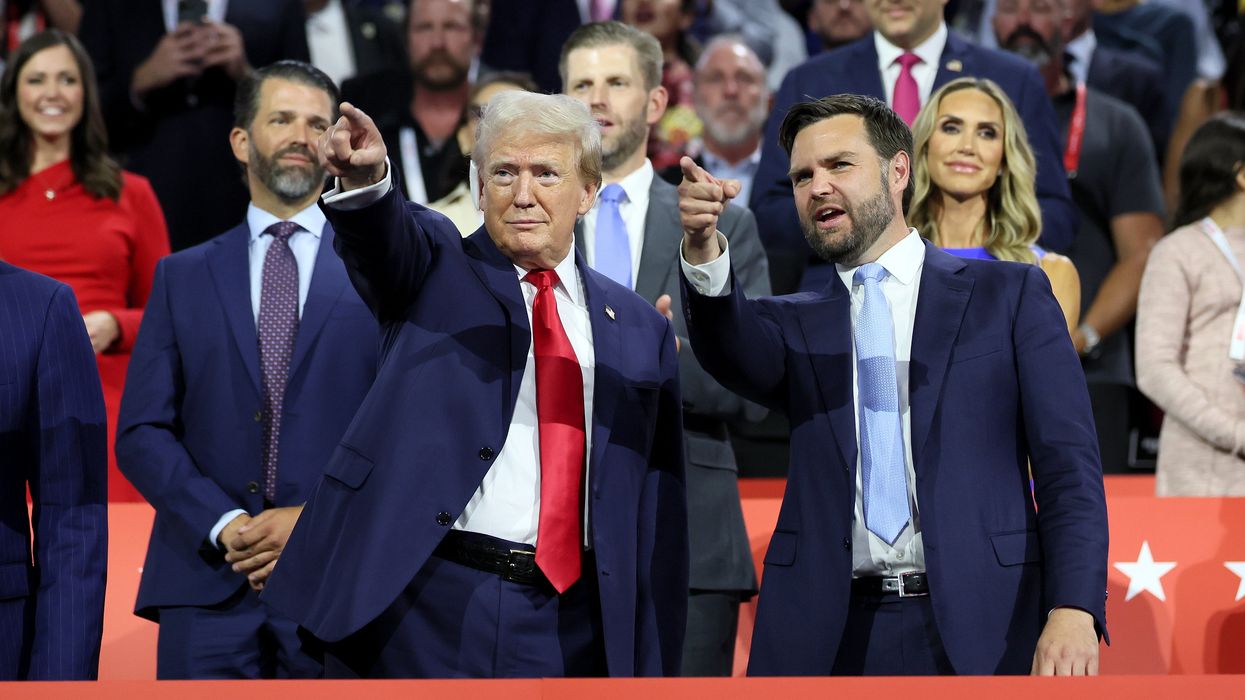Jonah Goldberg is editor-in-chief of The Dispatch and the host of The Remnant podcast. His Twitter handle is @JonahDispatch.
One of my great peeves of the Trump era is the Greenland effect.
I belong to a small group of people who think America should peacefully acquire Greenland. It’s an old idea. The State Department pitched buying the vast arctic island in 1946, but the Danes didn’t want to sell their colony, alas. But given its strategic and economic value, it’s worth revisiting.
When it was reported in 2019 that then-President Trump was interested in the scheme, it immediately became a punchline.
Of course, buying Greenland was always going to be a heavy lift politically, but Trump’s embrace made it infinitely heavier.
The Greenland effect doesn’t just apply to obscure and quirky good ideas, but also to good — or simply popular — ones. As president, when Trump embraced a policy, that policy became less popular. Despite his anti-immigration rhetoric, support for increased immigration reached an all-time high. He made free trade more popular than ever as well, while he started a trade war with China.
Some of this was the result of the thermostatic dysfunction of American politics. When one side is in power, significant numbers of voters tack the other way.
But Trump poses a specific problem for conservatives precisely because he and his enablers cannot countenance the idea that he’s unpopular. The stolen election lie is a symptom of this delusion: “Trump couldn’t have lost; the election must have been rigged.”
This makes the Greenland effect particularly insidious because conservative ideas, once associated with Trump, often become hard to sell for even gifted politicians.
Which brings us to J.D. Vance (R-Ohio … or Greenland?).
The general consensus is that Vance was a “ confidence pick,” a running mate choice that “ doubled down ” on MAGA messaging. As Washington Post columnist Jim Geraghty wrote two weeks ago, “Picking Vance is as close as Trump can get to doubling down on himself.”
I generally agree with this analysis, but it misses one key difference between Trump and Vance. Trump is an entertainer-celebrity more than a conventional politician. As a result, he gets away with things no conventional politician could get away with. He may invite passionate opposition from his foes, but his fans simply shrug at his misstatements, malapropisms and mendacity. Those of us who predicted in 2016 that the “laws of political gravity” would catch up with Trump were proven wrong because Trump is subject to the laws of celebrity gravity — a very different jurisdiction.
But Trump and his supporters made a similar miscalculation. They believed that unalloyed Trumpism, as they defined it, is popular outside the bubble of Trump’s cult of personality.
This helps explain why most of Trump’s MAGA imitators — folks like Kari Lake, Blake Masters, Herschel Walker — bombed in 2022. Even Vance, one of the few aggressively Trumpist GOP Senate candidates to win that cycle, significantly underperformed other Republicans on the ballot in red Ohio.
Vance’s rollout has been so rocky precisely because he’s an unvarnished MAGA candidate, who thinks offending or scaring people is a sign of masculinity and strength. His unearthed comment about miserable “childless cat ladies” was in the context of his larger support for child tax credits, a very popular idea. It doesn’t take a brilliant political mind to know that there are basically only two kinds of childless women: Women who want or wanted kids for whom that didn’t work out (or hasn’t yet), and women who didn’t want children (or haven’t yet) and understandably object to being ridiculed for it. But in Trump World, the ridicule is the point.
Both Vance and his leftwing detractors alike would have us believe that taxing the childless is a radical proposal from some MAGA edgelord. But as Dominic Pino of the National Review Institute notes, “The U.S. tax code, right now, punishes people who don’t have children relative to people who do, all else equal,” because of the child-tax credit and other allowances for minor dependents.
The Trump campaign is trying to run away from Project 2025, an initiative by the Heritage Foundation and Trump administration alumni. Much of the panic about it is overblown. But the panic was utterly predictable precisely because its proponents, including Vance, have deliberately cast it as a radical “second American Revolution,” that will be “ bloodless ” only if the left doesn’t resist, in the words of Kevin Roberts, the president of the Heritage Foundation (Vance writes the foreword to Roberts’ forthcoming book).
There’s a second problem with the Greenland effect. It doesn’t merely make conservative ideas needlessly unpopular. The unpopularity drives Republicans to abandon conservative ideas altogether in the name of political expediency. Trump has abandoned even the pretense of fixing entitlements or replacing Obamacare. He’s effectively become pro-choice on abortion, at least during the election. And, as Trump’s running mate, Vance has, too.
It really is a double-down ticket, twice the insults for the price of one.
©2024 Tribune Content Agency, LLC.



















 From left to right: Gabriel Cardona-Fox, Bud Branch, Joe Concienne
From left to right: Gabriel Cardona-Fox, Bud Branch, Joe Concienne 
Marco Rubio is the only adult left in the room